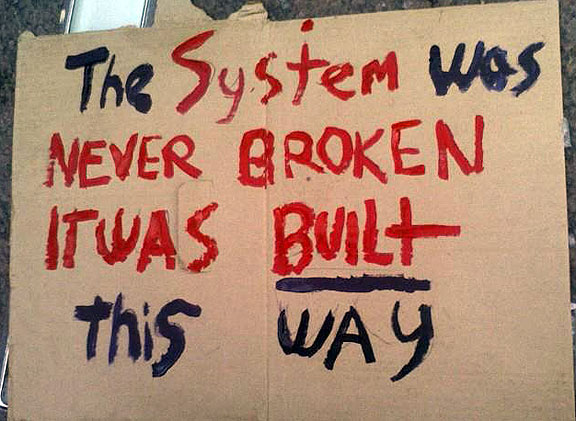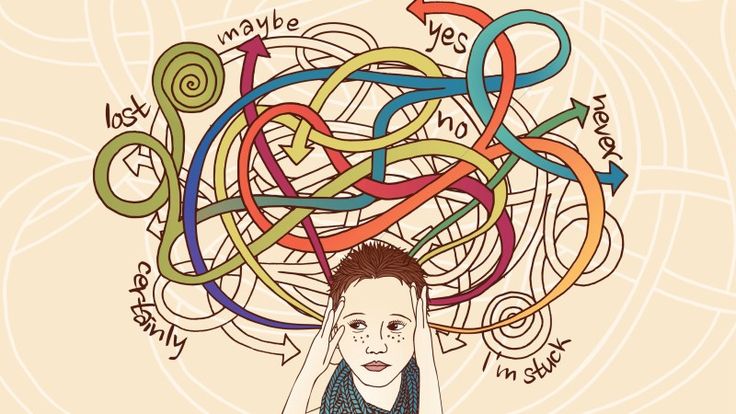What If the System Isn't Broken? What If It Is Built To Work Exactly This Way?

Every time a scandal breaks —like the N36 million exam funds swallowed by a “snake”— we say the same thing: “This country is not working.” When hundreds of people in farming communities are killed, or when a civil servant spends 35 years in service only to die waiting for their pension, the response is always a variation of the same sigh and resignation: “The system is broken.”
But what if it isn’t? What if this rot, corruption, and incompetence, so constant, is not a failure but a design? What if the system is working exactly as it was built to?
This question might sound pessimistic or even offensive. Especially if you still have faith — faith in democracy and in that mystical better future. But sometimes, clarity feels like betrayal. And sometimes, betrayal is exactly what you need to see the truth for what it is.
The Myth of a Once-Functional System
Let’s get something straight: calling the system broken might be a little too generous. It assumes there was a time when it was functioning, serving its purpose.
It might as well be assumed that at some point in our political history, fairness and justice were the default settings, only to be kicked out. But when has it ever truly worked for the majority?
When has the average Nigerian walked into a public hospital and been treated like a human being without paying out-of-pocket? When has the public school system been robust enough to prepare the children of poor parents for the same opportunities as their wealthy peers? When was the last time elections truly reflected the will of the people and not the decisions of a few godfathers?
Every “failure” we talk about is someone else’s success. The politician who delays minimum wage negotiations is padding contracts. The police officer extorting a bus driver is fulfilling his quota. The landlord raising rent by 50% overnight is exploiting demand just like the market told him to. The system isn’t malfunctioning — it is functioning exactly how those who benefit from it intended.
Colonial Blueprints, Familiar Faces, Same Script
To understand the present, you have to look at the foundation. The Nigerian system and many African systems by extension were never built to serve the people. It was inherited from colonial governments that prioritized control, extraction over welfare.
The colonial blueprint didn’t value human dignity, it valued productivity. And the post-independence leaders didn’t overhaul the design. They just switched out the white faces for familiar ones and continued the same performance — different actors, same script.
So the structure stayed the same: centralized power, elite networks, extractive economics, and a culture of fear disguised as order. Schools taught obedience. Churches and mosques preached endurance. And any attempt to question power was branded as rebellion.
We were never meant to win in this setup. Just survive and even that feels like a luxury now.

Photo Credit: Pinterest
The Reward Loop: How Dysfunction Benefits the Powerful
If you want to understand why nothing changes, follow the reward. People don’t keep bad systems alive out of laziness. They do it because they are reaping benefits from them.
That police checkpoint where you have to “drop something for the boys”? That is not just corruption; it is a salary supplement. That university official who upgrades a student’s result for money? That is institutional corruption turned business. That governor who promises youth empowerment while awarding multi-million-naira contracts to his brother-in-law’s company? That is theft with a press release.
We keep asking: “Why would they allow this to happen?” The real question is: Why would they stop it when it feeds them?
Manufactured Hope: The Illusion of Progress
Part of what makes this system so insidious is how well it gaslights us. We are told to be patient, that change takes time, that “Rome wasn’t built in a day.”
We were told that for change to be truly effective, everything must go down — the value of every sector. While the masses are gaslighted into believing the present struggle is needed for the coming change, the government officials are getting a 300% increase in their salaries for sitting in an air-conditioned room debating a new bill.
Every election cycle, we are served the same recycled slogans dressed up in new party colours and initials. Every December, someone somewhere holds a “youth summit” or “stakeholders dialogue” where nothing is said, but everything is streamed.
It is not just about inefficiency. It’s about creating the illusion of progress so we don’t burn it all down.
Hope, in its weaponized form, is one of the strongest tools of oppression. We are constantly sold dreams, all while the same people hold the reins.
They tell us to “work hard,” as if the unemployed graduate driving an Uber is not doing that. They say, “Your vote counts,” while ballot boxes disappear under police protection. They parade a few token success stories on X and use it as evidence that “you just have to believe.”
Reform is Not Revolution
Let’s talk about reform — that soft, seductive word that politicians and NGOs love to throw around. Reform is a facelift. It keeps the skeleton intact but throws on a little makeup so it doesn’t look as scary.
But what do you do when the very structure is the problem?
You can reform the police, but if the institution was designed to protect the elite and intimidate the poor, what you end up with is a PR campaign, not change.
You can reform education, but if it still produces obedient labourers instead of free thinkers, it is just repackaging the same old dysfunction in modern boxes.
Sometimes, the system doesn’t need tweaks; it needs demolition. A conscious, radical reimagining.
The Human Cost of a Rigged Game
Behind every policy failure is a person. There is the lady who lost her sister because her surgery fees to be done outside the country were too exorbitant for her average Nigerian family. The man who spent half his life driving Keke just to build a house, only for the government to demolish it without notice or proper compensation.
This is not a theory. This is real life. This is the ache people carry in their bones when they say, “I’m tired.”
This is why young people risk everything to japa. They do not care if they have to trek through the Sahara desert for weeks or die of thirst, as long as they are leaving the system that failed them continuously. Because when the system becomes a maze with no exit, flight feels like the only freedom.
Photo Credit: RAD Advocates
Naming the Trap: The First Step to Liberation
It is tempting to end here — to wrap everything up with a neat call to action. But the truth is, I don’t have all the answers. What I do know is that the first step to change is calling things by their real names.
The system isn’t broken; it is rigged, tilted. It is corrupt by design. And if we keep treating it like a house with a leaky roof instead of a trap built to keep us crawling, we will never build anything new.
We have to stop looking for saviours and start asking deeper questions. What would a system built for justice look like? What would leadership rooted in care, not control, feel like? What would education that teaches courage, not compliance, produce?
Maybe it’s time we stopped trying to fix the machine and started imagining life outside of it.
So the next time someone says, “The system is broken,” ask them: “Are you sure it was ever built for us in the first place?”
Because maybe it wasn’t. And maybe the real revolution is refusing to play by rules that were never meant to protect you.
You may also like...
Bundesliga's New Nigerian Star Shines: Ogundu's Explosive Augsburg Debut!

Nigerian players experienced a weekend of mixed results in the German Bundesliga's 23rd match day. Uchenna Ogundu enjoye...
Capello Unleashes Juventus' Secret Weapon Against Osimhen in UCL Showdown!

Juventus faces an uphill battle against Galatasaray in the UEFA Champions League Round of 16 second leg, needing to over...
Berlinale Shocker: 'Yellow Letters' Takes Golden Bear, 'AnyMart' Director Debuts!

The Berlin Film Festival honored
Shocking Trend: Sudan's 'Lion Cubs' – Child Soldiers Going Viral on TikTok

A joint investigation reveals that child soldiers, dubbed 'lion cubs,' have become viral sensations on TikTok and other ...
Gregory Maqoma's 'Genesis': A Powerful Artistic Call for Healing in South Africa

Gregory Maqoma's new dance-opera, "Genesis: The Beginning and End of Time," has premiered in Cape Town, offering a capti...
Massive Rivian 2026.03 Update Boosts R1 Performance and Utility!

Rivian's latest software update, 2026.03, brings substantial enhancements to its R1S SUV and R1T pickup, broadening perf...
Bitcoin's Dire 29% Drop: VanEck Signals Seller Exhaustion Amid Market Carnage!

Bitcoin has suffered a sharp 29% price drop, but a VanEck report suggests seller exhaustion and a potential market botto...
Crypto Titans Shake-Up: Ripple & Deutsche Bank Partner, XRP Dips, CZ's UAE Bitcoin Mining Role Revealed!

Deutsche Bank is set to adopt Ripple's technology for faster, cheaper cross-border payments, marking a significant insti...
